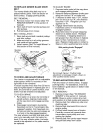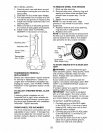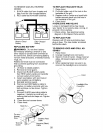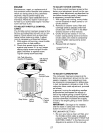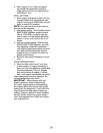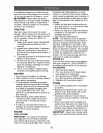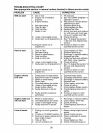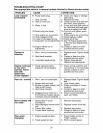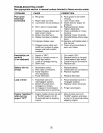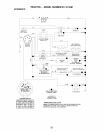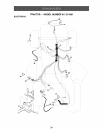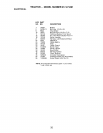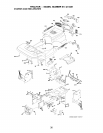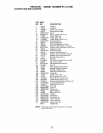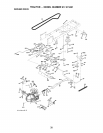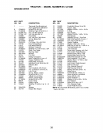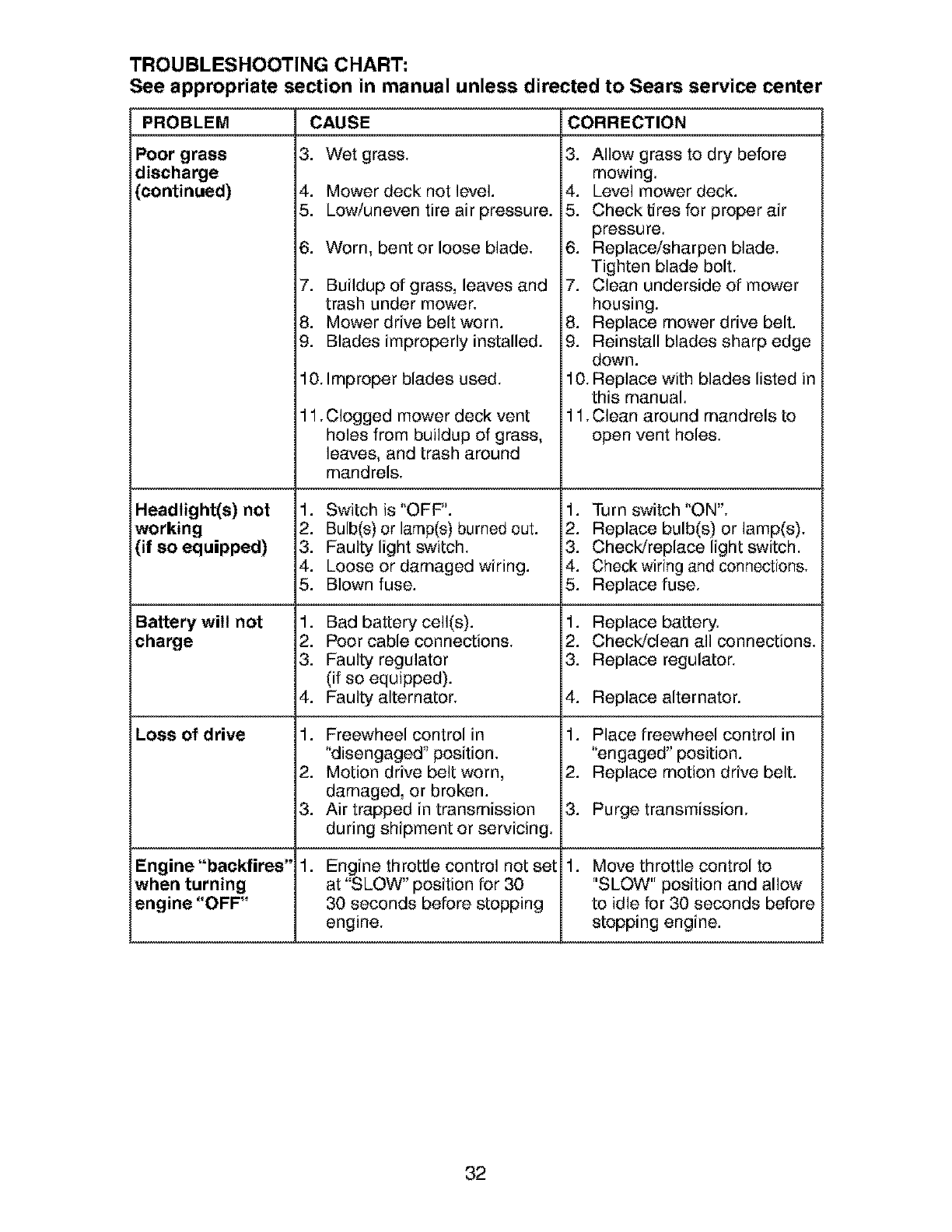
TROUBLESHOOTING CHART:
See appropriate section in manual unless directed to Sears service center
PROBLEM CAUSE CORRECTION
Poor grass 3. Wet grass. 3. Allow grass to dry before
discharge
(continued) 4.
5.
6.
7.
8.
9.
Mower deck not level.
Low/uneven tire air pressure.
Worn, bent or loose blade.
Buildup of grass, leaves and
trash under mower.
Mower drive belt worn.
Blades improperly installed.
10. Improper blades used.
11. Clogged mower deck vent
holes from buildup of grass,
leaves, and trash around
mandrels.
mowing.
4. Level mower deck.
5. Check tires for proper air
pressure.
6. Replace/sharpen blade.
Tighten blade bolt.
7. Clean underside of mower
housing.
8. Replace mower drive belt.
9. Reinstall blades sharp edge
down.
10. Replace with blades listed in
this manual.
11 .Clean around mandrels to
open vent holes.
Headlight(s) not 1. Switch is "OFF".
Bulb(s) or lamp(s) burned out.
Faulty light switch.
Loose or damaged wiring.
Blown fuse.
working 2.
(if so equipped) 3.
4.
5.
Battery will not 1.
charge 2.
3.
4.
Loss of drive 1.
2.
3.
Bad battery cell(s).
Poor cable connections.
Faulty regulator
(if so equipped).
Faulty alternator.
Freewheel control in
"disengaged" position.
Motion drive belt worn,
damaged, or broken.
Air trapped in transmission
during shipment or servicing.
1. Turn switch "ON".
2. Replace bulb(s) or lamp(s).
3. Check/replace light switch.
4. Check wiring and connections.
5. Replace fuse.
1. Replace battery.
2. Check/clean all connections.
3. Replace regulator.
4.
1.
2.
3.
Replace alternator.
Place freewheel control in
"engaged" position.
Replace motion drive belt.
Purge transmission,
Engine "backfires" 1. Engine throttle control not set 1. Move throttle control to
when turning at "SLOW" position for 30 "SLOW" position and allow
engine "OFF" 30 seconds before stopping to idle for 30 seconds before
engine, stopping engine.
32



